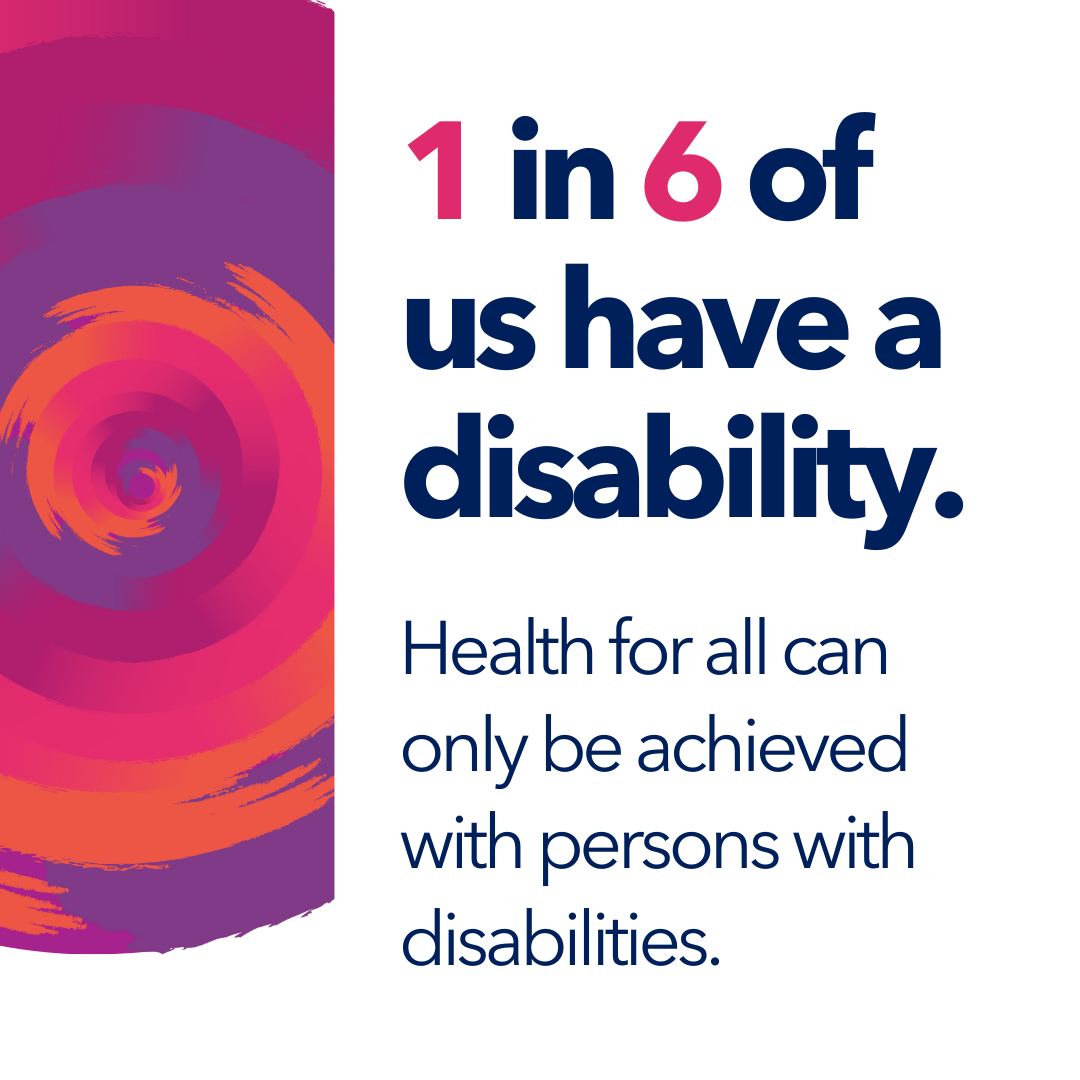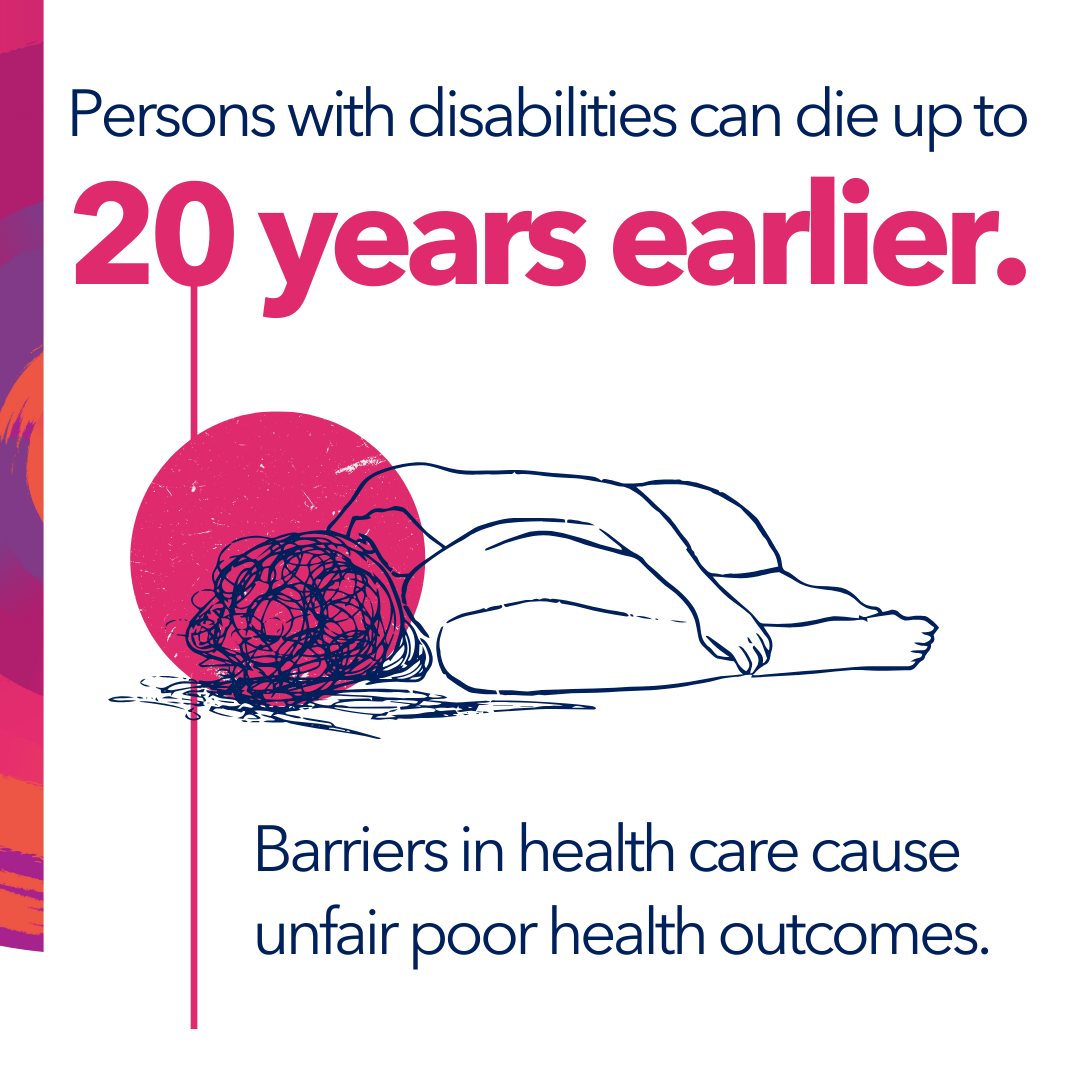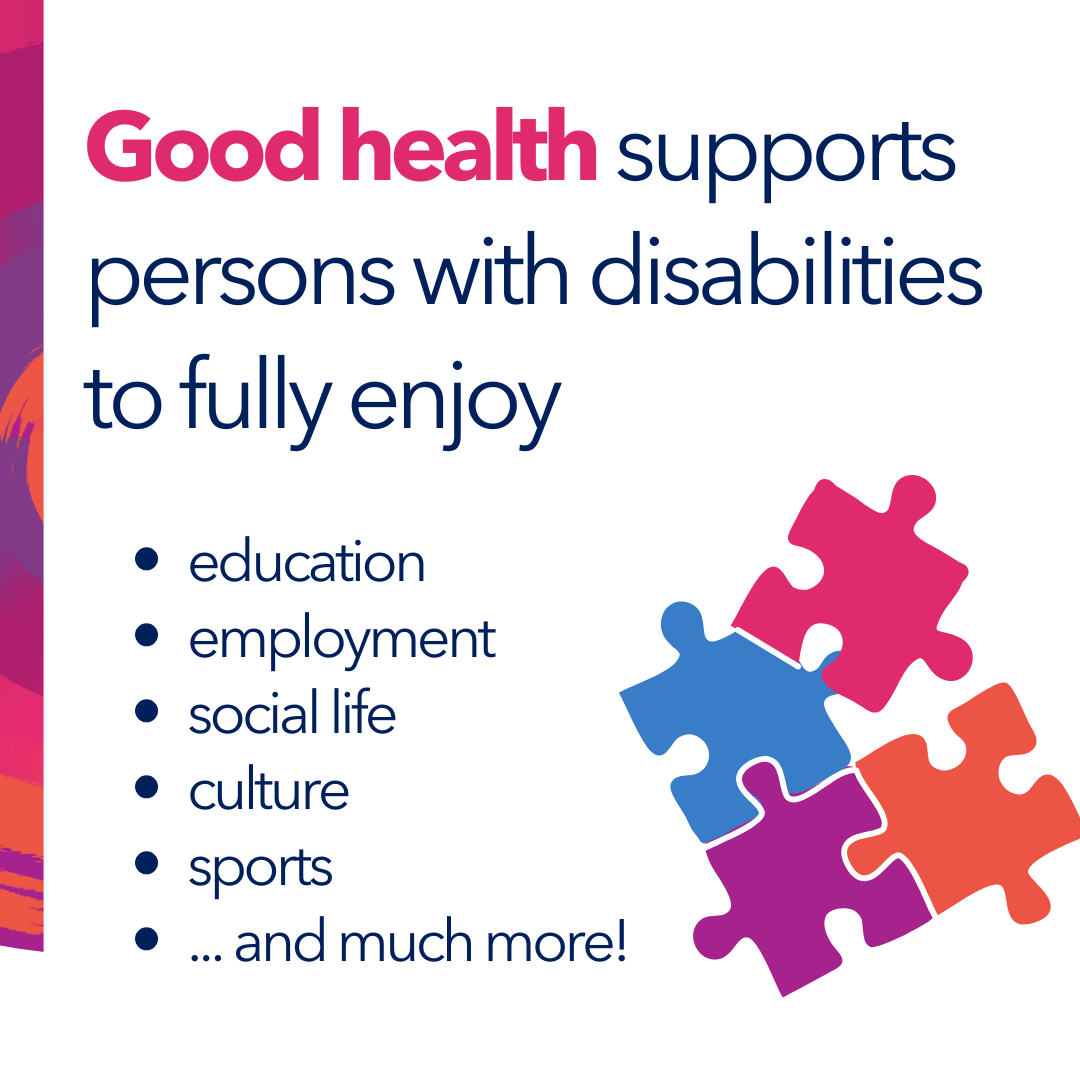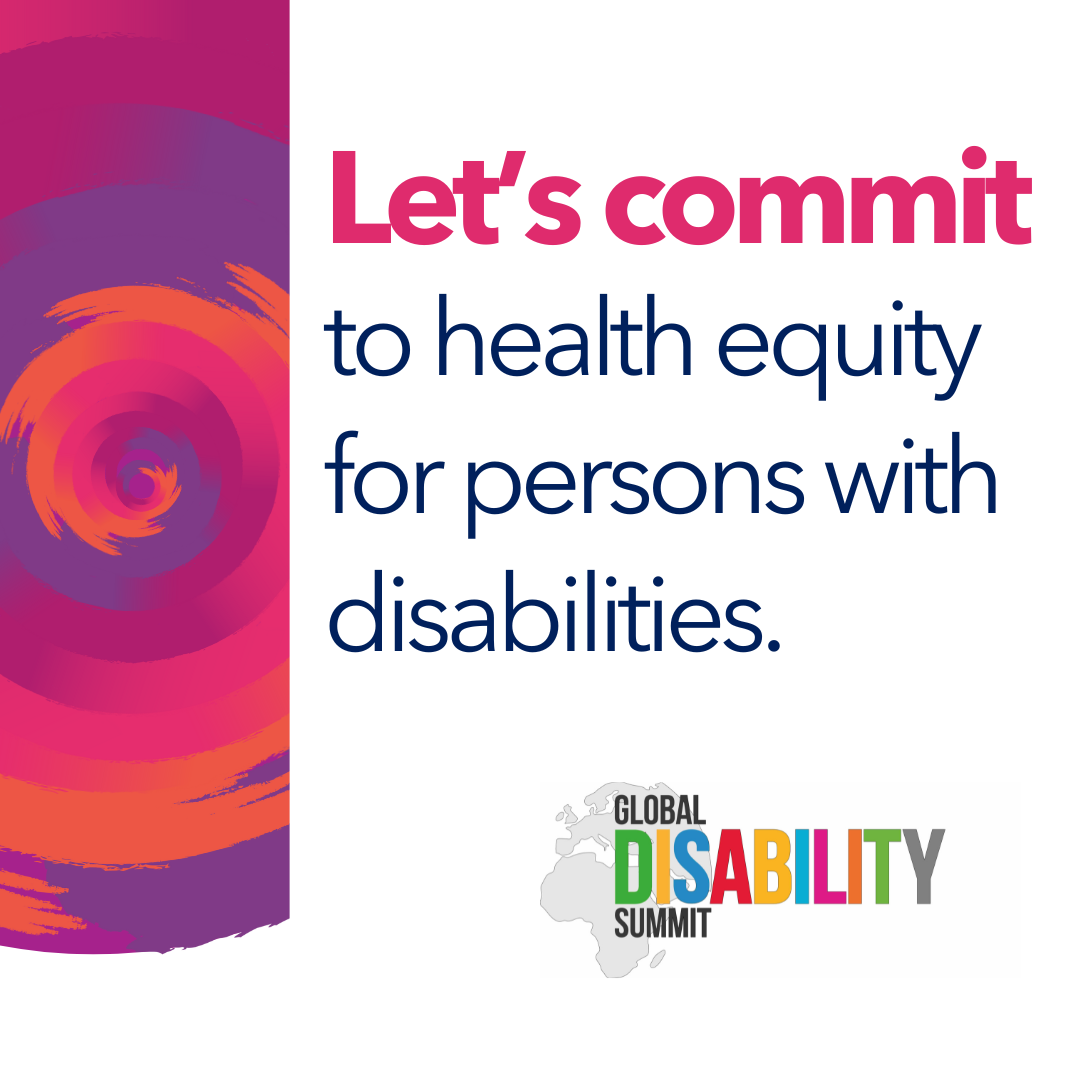The Global Disability Summit 2025, organized by the Governments of Jordan and Germany, and the International Disability Alliance, took place on 2-3 April 2025 in Berlin, Germany. This Summit represented a key opportunity to catalyse the political prioritization needed to advance health equity for persons with disabilities. Together, heads of states and governments, ministers of health, heads of agencies and international organizations, organizations of persons with disabilities, private sector stakeholders, civil society leaders, and academic partners discussed and made commitments for a disability inclusive future.
Key highlights
1. WHO announces the launch of a global initiative on health equity for persons with disabilities
The presence of Dr Tedros Adhanom Ghebreyesus, Director-General of the World Health Organization signalled how disability inclusion is a priority for achieving health for all, even amidst turbulent times in global health and international development. In the opening session of the summit, he announced that WHO will launch a global initiative on health equity for persons with disabilities to build the strategic movement needed to promote the right to health for persons with disabilities.
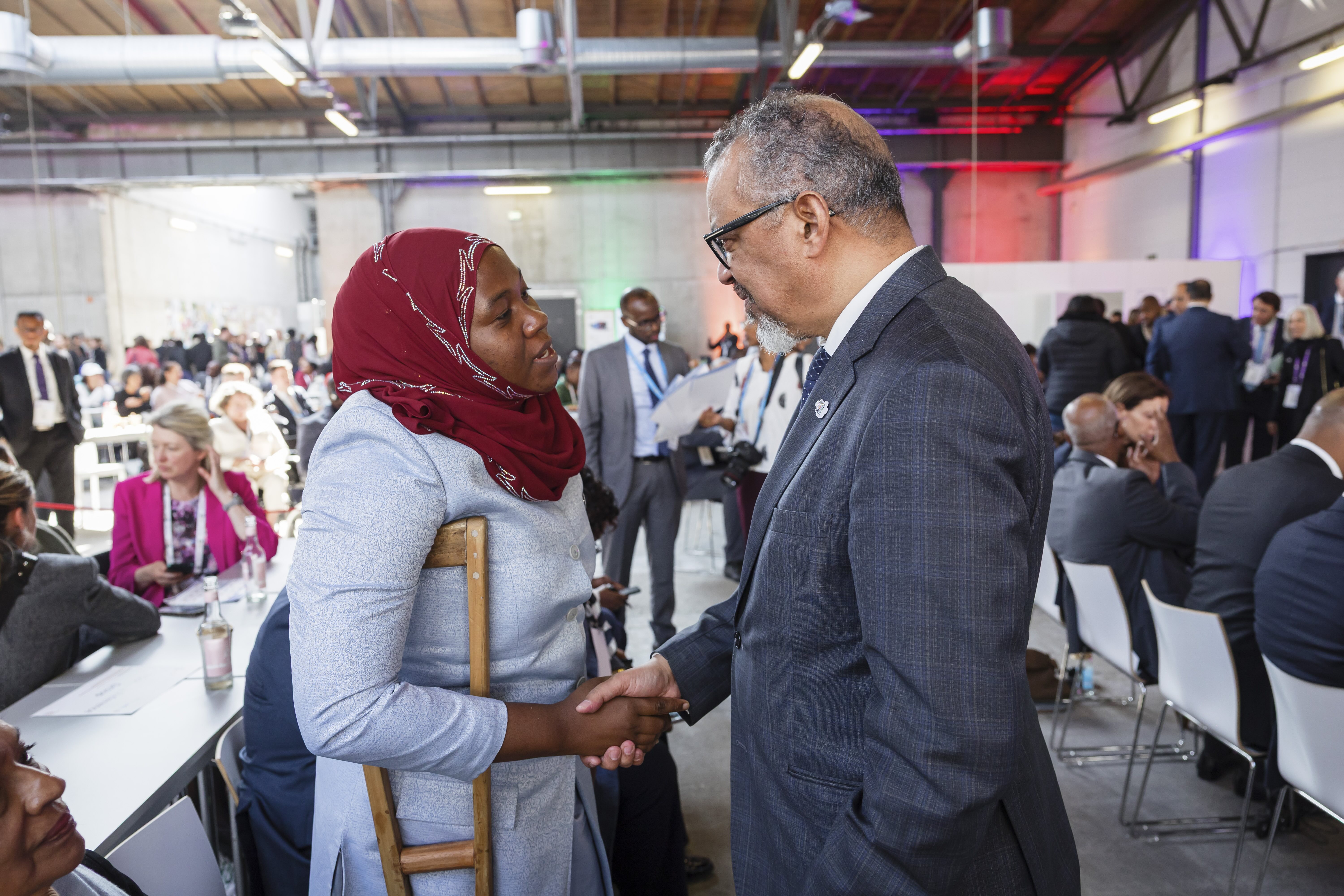
2. Health at the heart of the Global Disability Summit programme
The programme featured a main session entitled “Health for all: Transforming health-systems and ensuring health equity for persons with disabilities” which aimed to:
- Discuss the transformative shifts required to achieve health for all,
- Put the rights of persons with disabilities at the centre of public health,
- Address accessibility and affordability of health care for persons with disabilities, and
- Ensure representative organizations of persons with disabilities are at the heart of the current public health shifts.
Speakers included Hildegarde Naughton (Minister of State, Department of Children, Equality, Disability, Integration and Youth, Ireland), Mukhtar Ahmad Malik (State Minister of Health, Pakistan), H.E. Samah Hamad (Minister of Social Development, occupied Palestinian territory, Janet Charchuk (Ambassador, Down Syndrome International), Ian McFarlane (Director, Division of External Relations, United Nations Population Fund), Tom Shakespeare (Lancet Commission on Disability), and Darryl Barrett (Technical Lead of the WHO Disability Programme).
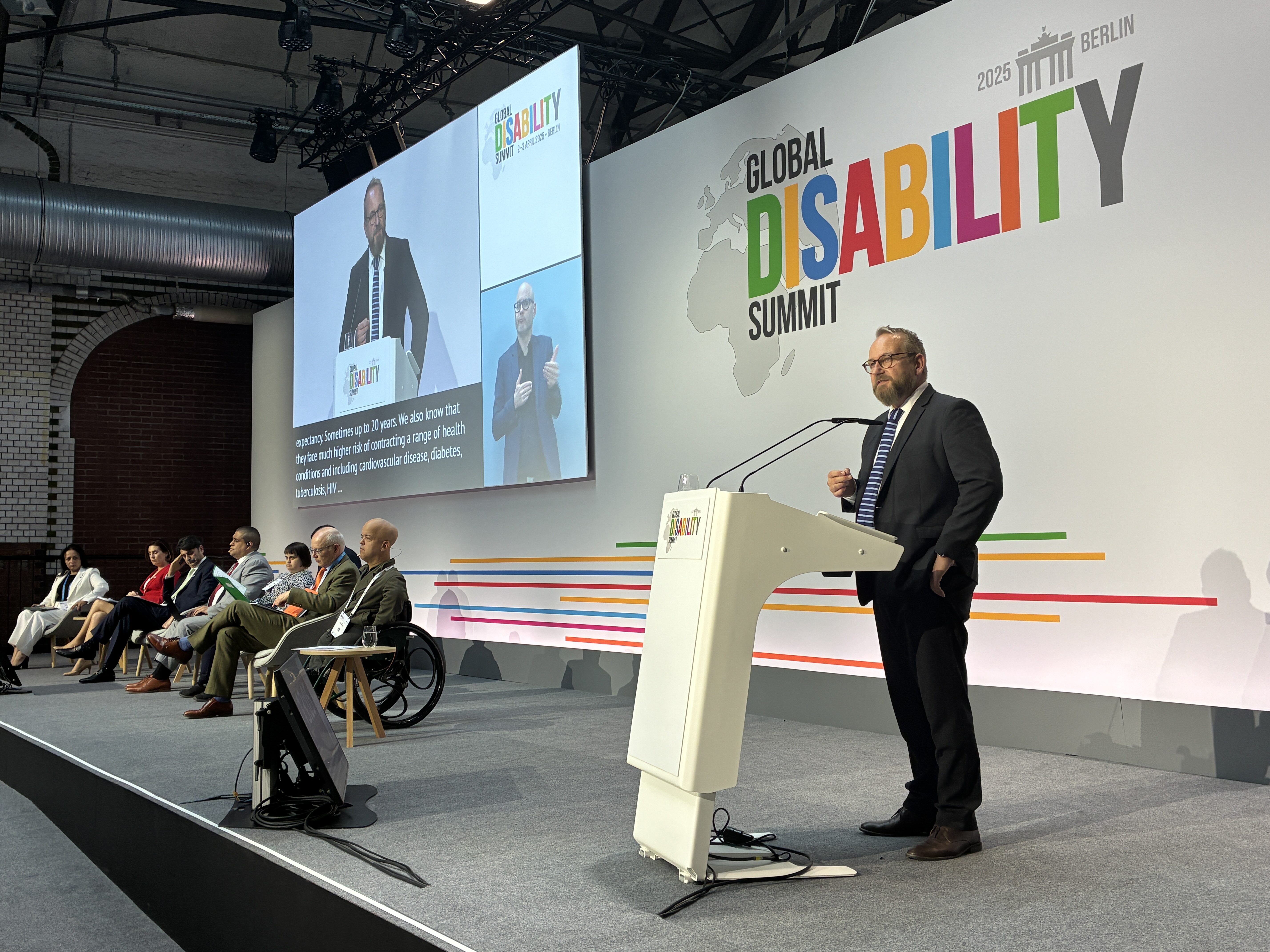
3. Health as a priority beyond the official programme and summit
Many other planned and serendipitous meetings occurred within and in the margins of the summit to discuss the key challenges and actions needed to advance health equity for persons with disabilities. This included encounters with government representatives, conversations with leaders of organizations of persons with disabilities, and exchanges with representatives of international NGOs, among others. Two bilateral meetings organised by the International Disability Alliance allowed WHO representatives to hear the ideas and priorities of over 24 organizations of persons with disabilities, which will shape the global initiative on health equity for persons with disabilities.
Health also transpired as a key consideration in many other official sessions of the summit, such as on climate action, digital innovations, or young people, which revealed the urgent need to strengthen multisectoral and multistakeholder collaboration. For example, a side event organised by Sightsavers (Equal World campaign), International Disability Alliance (Youth Committee) and UNICEF unpacked the IDA youth call to action which features health as key priority for children and young people with disabilities.In short, the Global Disability Summit 2025 enabled invaluable encounters and rich discussions that will shape WHO work moving forward to advance health equity for persons with disabilities. It was a monumental opportunity to mobilize key partners around the issues and opportunities to promote the rights and inclusion of persons with disabilities globally. But efforts should not stop here. Now, more than ever, we need to continue the discussions that were started during this event and take collective action to advance the right to health for all persons with disabilities.

